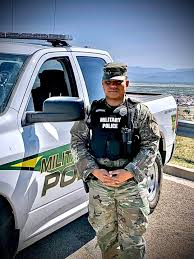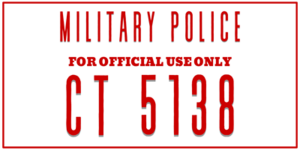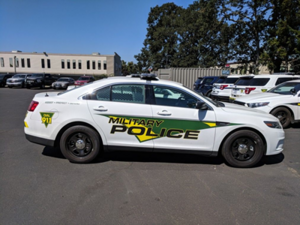Civil protection in Anagonia: Difference between revisions
| Line 22: | Line 22: | ||
=====Other Law Enforcement Entities===== | =====Other Law Enforcement Entities===== | ||
With seventeen territories and seven states, the diverse canvas that is the Confederate States houses a dynamic of different cultural and traditional obligations. Counties, cities, towns, reservations, and other municipalities are legally allowed to operate their own citizen law enforcement agencies. These standard police officers have the authority to uphold the law expected by their specific area of influence. When a Confederate States Military Policeman is involved, however, these police officers are expected to defer legal authority to the MP's as required by constitutional law. The only expectation is the many voluntary reservations that dot the country, where both Native Anagonians, Native Non-Human Citizens, and other Native peoples operate their own sovereign stretch of land within the legal authority of a State or Territory. Within these reservations, Military Policemen are considered equal to the reservation law enforcement and are strictly to operate in their jurisdictions for wellness checks and provide avenues for | With seventeen territories and seven states, the diverse canvas that is the Confederate States houses a dynamic of different cultural and traditional obligations. Counties, cities, towns, reservations, and other municipalities are legally allowed to operate their own citizen law enforcement agencies. These standard police officers have the authority to uphold the law expected by their specific area of influence. When a Confederate States Military Policeman is involved, however, these police officers are expected to defer legal authority to the MP's as required by constitutional law. The only expectation is the many voluntary reservations that dot the country, where both Native Anagonians, Native Non-Human Citizens, and other Native peoples operate their own sovereign stretch of land within the legal authority of a State or Territory. Within these reservations, Military Policemen are considered equal to the reservation law enforcement and are strictly to operate in their jurisdictions for wellness checks and provide avenues for humanitarian supplies should the situation require it. | ||
=====Statement of Citizens Rights===== | =====Statement of Citizens Rights===== | ||
Revision as of 01:04, 29 April 2024
Civil Protection is mostly carried out by the Confederate States Military Police branch of the Confederate States Armed Forces. The Confederate States Military Police act as both the nations National Guard and Law Enforcement Agency. They are able to be called to wartime situations, be deployed externally and internally for crisis situations (humanitarian, force projection, piracy deterrance, et cetera), and have full legal authority to enforce the nations laws within the borders of Anagonia.
Overview
Civil Protection is carried out by the Military Police due to long standing traditions within the Confederacy. It has long been believed that a military-based police force, obligated more to the defense of the People rather than the government itself, would better ease tensions within the nation as a whole. It was also believed that with military-grade training that a more professional and capable civil servant would be created who could abide by all laws provided. Statistics have shown that in 99.9% of incidents where the Military Police have been involved, there were no outstanding issues to do with the policemen themselves. This has further enforced the idea that a professional standing and obligation to the people has helped ensure that the Military Police keep the peace rather than be forced to enforce it through harsh measures.
Civil Unrest
During times of civil unrest, such as mass protests or general rebellion, the Military Police ensures that first and foremost the People are protected from all harm. According to the laws of the Confederacy, the People have all rights to protests publicly and privately any and all grievances to their government and/or relevant conditions. Normal procedure for unscheduled protests is to have a unit standby and protect private property while maintaining a distance from the protest in question. Should the protest get out of hand or become violent in any nature, it is the right of the MP to defend the people from harm and harming themselves. In such conditions the MP's will border off the protests and attempt to quell the violence in a diplomatic and peaceful manner. Should that fail, non-lethal force will be used to hamper any violence in the protests.
If a rebellion of any sort occurs in any city, county, state or region within the Confederacy the Military Police has the right to ensure that the people involved in the rebellion do not wish bodily harm upon their fellow man. If such a case is true, they will use aggressive non-lethal force to quell such rebellion. If lethal force is used against the MP during these times and no armored protection is capable of defending the MP or if a MP is injured, lethal force will be authorized under the law of "Protecting the Nation". Once said rebellion is quelled or calmed to a more proper diplomatic fashion, a council will be formed between the government and the People to address the issues that initiated the rebellion. The Military Police is required by law to moderate and oversee the meeting between the two parties and ensure that the People benefit the most from the outcome, so long as said outcome does not dissolve the Confederacy in any manner.
Normal Procedures
The normal Operating Conditions of the Military Police is to provide comfort and aid to all citizens, both foreign and domestic, within the Confederacy. They are obligated to respond to calls concerning possible violations of set law within a city, county, state and/or region. Professionalism and respect is key when an MP is on duty, as laws require that the Military Police maintain the stance as the mediator during times of peace. If at any point an MP violates these codes and protocols corrective action is to be immediately taken to ensure the safety of the public. Above all it is the responsibility of the Military Police to use any and all measures according to the level of seriousness within any known or unknown situation to ensure the continued right of every Anagonian to seek their right to happiness and fulfillment with minimal government and criminal interference.
Commercial Vehicle Enforcement
The Military Police are the only law enforcement entity within the Confederate States with the legal authority to enforce Confederate States Department of Transportation (CSDOT) regulations on commercial vehicles. Military Police operate and maintain thousands of weigh stations across the country. They have dedicated units that are assigned year-round to interstate highway patrols to enforce CSDOT regulations and engage in civil protection law enforcement towards the motoring public, when the situation is appropriate.
Other Law Enforcement Entities
With seventeen territories and seven states, the diverse canvas that is the Confederate States houses a dynamic of different cultural and traditional obligations. Counties, cities, towns, reservations, and other municipalities are legally allowed to operate their own citizen law enforcement agencies. These standard police officers have the authority to uphold the law expected by their specific area of influence. When a Confederate States Military Policeman is involved, however, these police officers are expected to defer legal authority to the MP's as required by constitutional law. The only expectation is the many voluntary reservations that dot the country, where both Native Anagonians, Native Non-Human Citizens, and other Native peoples operate their own sovereign stretch of land within the legal authority of a State or Territory. Within these reservations, Military Policemen are considered equal to the reservation law enforcement and are strictly to operate in their jurisdictions for wellness checks and provide avenues for humanitarian supplies should the situation require it.
Statement of Citizens Rights
The Confederate Military Police are both protectors and police for the people. The following is what all MP's must learn when making an arrest. It is simply termed "Citizen Rights".
"You have the right to remain silent. Anything you say can and will be used against you in a court of law. I, Officer <insert officer name here> have placed you under arrest for the following: <insert crime list here plus severity>. By the Constitution of the Confederate States, you are obligated to have a proper defense should you be brought to court. An attorney will be granted to you free of charge by the government of the Confederate States. If you choose to represent yourself you will be given proper introduction in civil defense also free of charge. Do you understand what I have said?"
Standard Operating Vehicles
The Military Police can usually be seen patrolling in Humvee's, M1117 Armored Security Vehicles or the more mundane Patrol Car which encompasses a variety of vehicle classes depending on the budget of the county or state. There are no standard restrictions on vehicle classes, however with the M1117 ASV any lethal weaponry is strictly kept in reserve until such a time as a national emergency, such as an invasion of foreign forces.




